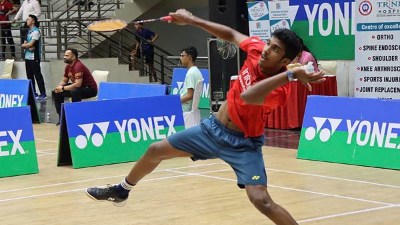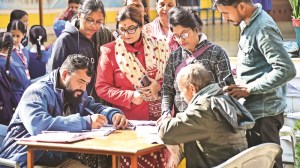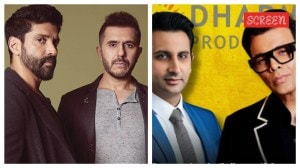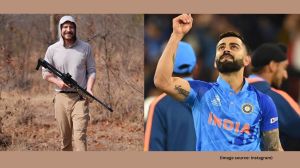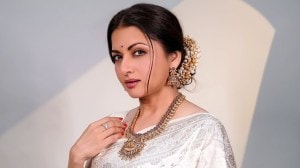Click here to follow Screen Digital on YouTube and stay updated with the latest from the world of cinema.
Modern Love Mumbai: Chitrangda Singh and Arshad Warsi capture bittersweet effects of love, marriage in just one scene
Modern Love: Mumbai was definitely the more watchable of all the Indian anthologies of late; some of the stories and their conclusions were just as satisfying as misal pav on the rocks of Marine Drive.
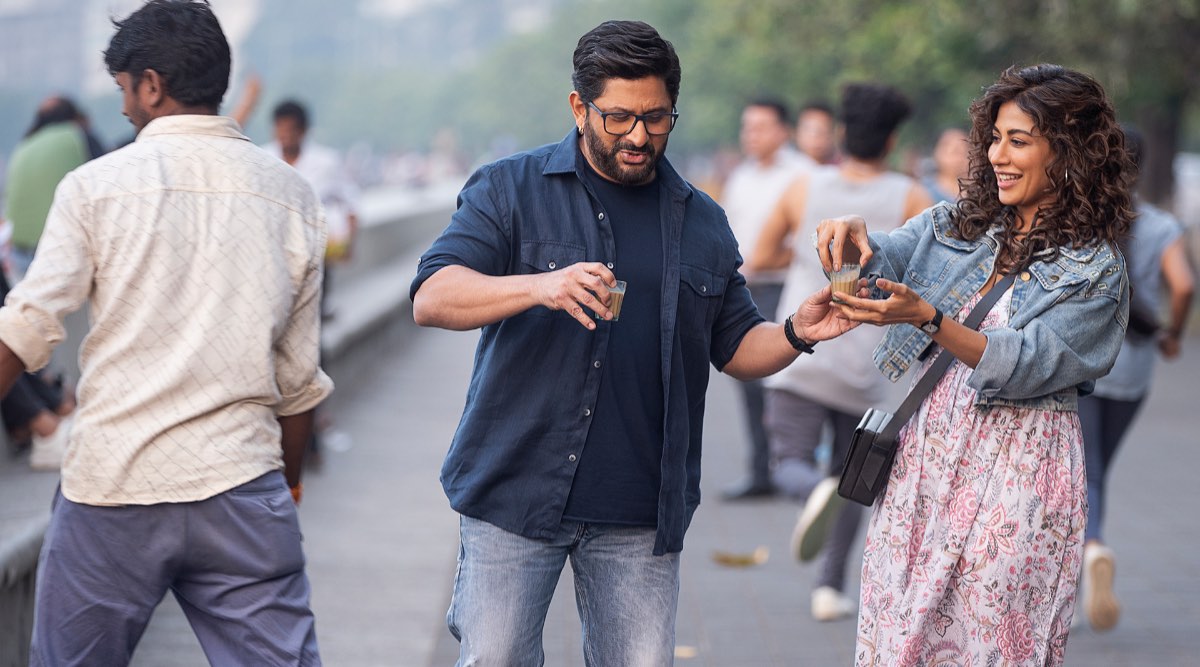 Chitrangda Singh and Arshad Warsi in Modern Love: Mumbai (Photo: Amazon Prime)
Chitrangda Singh and Arshad Warsi in Modern Love: Mumbai (Photo: Amazon Prime)There have been so many anthologies on streamers that now most (if not all) of them seemed to have blurred into a congealed mass. When I saw the trailer for the latest one, Modern Love: Mumbai, I won’t deny that I groaned at the thought of another anthology clumsily portraying the different hues of love, while having little or no subtlety at all. Nevertheless, I wasn’t completely proven right.
Most of the stories were quite heavy-handed, almost beating on your head with their central idea — the much-dreaded message. The run-time of each short could have been easily cut down from 40 minutes to 20, perhaps even shorter. There was an undeniable wholesomeness that wafted through the anthology that sometimes got drowned by exposition and incessant conversation. Yet, in some stories there was a poignant scene encapsulating everything that the screenplay was trying to say. It’s a small, gentle brush of sweetness that sets this anthology apart from the other such attempts of explaining love and loss. It comes unexpectedly, and saves the anthology from complete redundancy.
The Mumbai twist to the American series Modern Love sees men and women trying—and perhaps failing—to understand the bittersweet pangs of romance, amid the push and pull of living in a metropolis. Perhaps this sounds trite and clichéd, but as stories themselves aren’t novel, it’s the performances that uplift them. Fatima Sana Shaikh played a feisty Kashmiri woman who is suddenly abandoned by her husband. After feeling crushed and crying to her upper-class employers, she pulls herself together and takes on her biggest challenges yet—biking across a flyover, and eating her favourite ice-cream alone. A done-to-death trope about a woman finding happiness after being left by her husband, but Fatima’s vibrant performance pulls the story from falling into drudgery.
In ‘I love Thane’ Masaba Gupta is an architect trying to find love through dating apps. She is drawn to another earnest architect. While the film has a dreary take of how people on dating apps are not real and one must ‘experience the real world’, the understanding between the two at the end is wholesome: a kiss on the forehead, marking the beginning of a new relationship. Masaba is effortlessly natural in her depiction of a woman plagued by anxieties about dating and relationships. ‘My Beautiful Wrinkles’ and ‘Baai’ don’t have the same winsomeness despite a stellar cast, possibly because Alankrita Srivastava and Hansal Mehta expound a little too much. Sarika and Pratik Gandhi cannot save the laboured storytelling and the excessive emotional outbursts that drown out the actual message of the shorts stories.
The story that stood out by a mile was Vishal Bhardwaj’s Mumbai Dragon, which delves into the possessive mother persona, but with flavour and sensitivity. Sui (Yeo Yann Yann) and her son Ming live in the little-known Chinese corner of Mumbai. There are no cultural barriers here; as Sui and Ming comfortably speak Hindi and a jolly Naseeruddin Shah, playing their friendly-neighbourhood Punjabi, converses with them in Cantonese. Sui can cook up a sweet corn coup—a family specialty— and dim sums that she sells at Nariman Point. However, she is almost incandescent with rage when her son gravitates to a chatty Gujarati girl who doesn’t eat meat or garlic. A miffed Sui, a staunch carnivore, has to stir up egg-plants for her and she isn’t pleased at all. The comedy in this episode is top-notch, evident in one scene where Sui spies on her son Ming hugging his girlfriend and singing a song about dim sums. A rather distressed Sui troops back to her room, worried about the fate that is about to befall her son. She doesn’t want this ‘vegetarian daayan’ as she calls Megha for her son—and doesn’t hold back from telling him so. He doesn’t fall prey to her emotional blackmail but neither can he quite refuse her, which is clear from the overflowing boxes of food in their fridge. The story is brilliantly comic and doesn’t fall prey to any stereotypes, cultural or otherwise, and sounds like a perfectly relatable experience that one might encounter in their daily lives.
Yet, ironically, the one scene that left a sweet taste was the one between Chitrangda Singh and Arshad Warsi in Cutting Chai. For around a good 30 minutes, the story was annoyingly clichéd with an expository narration in the background. Chitrangda played an irritable writer and homemaker, drowning in the humdrum of regular life. It’s one of those days when she feels that her marriage to perpetual latecomer Arshad Warsi is drudgery, and the exhaustion with marital responsibilities knows no bounds. Her writing career hasn’t gone places that she once imagined that it would. She wonders what would have happened if she had just taken a networking possibility at an event more seriously, rather than falling in love with Arshad Warsi, who was also present at the same event. It’s a story of trying to understand why people fall in love in the first place—what attracted them to the person earlier, and how these little moments shine through the tedium of life.
Keeping aside the bizarre musical-style fantasy that seems like a Delhi University street play—it’s that one montage of scenes that brings the wholesomeness to the episode. After recalling all the times her husband has been late, Chitrangda remembers the sweet moments after those initial feelings of anger and bitterness towards him. She thinks about why she fell in love with him in the first place, and why she stayed. The montage showcasing the times that he turned up after being late, somehow still winning her over, is shot beautifully, showing the tenderness of love that still exists in their marriage despite them being polar opposites. Perhaps this is the nuanced meaning of love that I wanted to see in the show, that even if all the romance gets submerged in the chaotic routines of life—it hasn’t been eroded. After watching that montage, I felt that this short story had redeemed itself from its earlier clumsiness. It wasn’t even a huge moment—just a series of seemingly small and insignificant moments that constitute a romance and later a marriage—and how a person revels in them, whenever times get too difficult.
- 01
- 02
- 03
- 04
- 05



